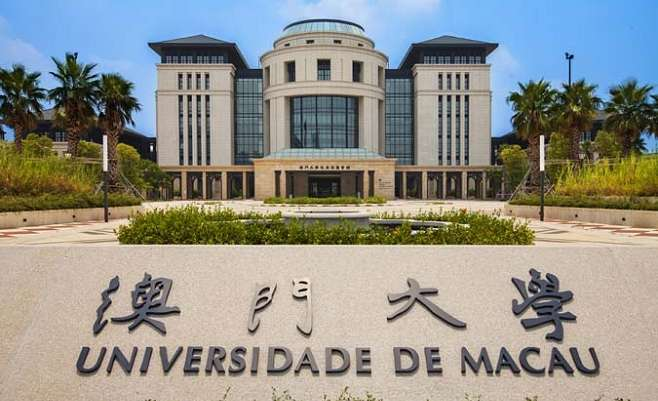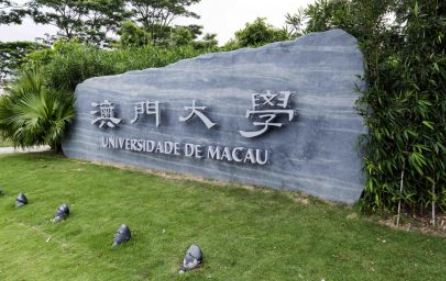The acceptance rate for Macau University is approximately 25%, indicative of its selective nature.
Table of Contents
Overview of Macau University
Brief History and Reputation
Macau University, established in the early 1980s, quickly positioned itself as a pivotal educational institution, not just in Macau but in the wider Asian region. Known for its rigorous academic programs and a commitment to research excellence, the university has consistently maintained high rankings, particularly in fields such as Business, Engineering, and Technology. It boasts a significant alumni network, with graduates holding influential positions in various sectors globally.

Key Highlights:
- Founded in the 1980s, reflecting a rich heritage and a rapid rise in the educational sector.
- Consistently ranks among the top universities in Asia.
- Strong emphasis on research, innovation, and collaboration with industry leaders.
Key Academic Programs and Research Areas
Engineering Faculty:
- Notable for cutting-edge research in renewable energy and smart city technologies.
- Collaborations with leading tech firms ensure students have access to the latest innovations and practical experience.
- Investment in research infrastructure totals over $50 million, ensuring access to modern facilities and equipment.
Business Faculty:
- Recognized for excellence in entrepreneurship and international business strategies.
- Strong network of industry partners facilitates a high employment rate of over 95% for graduates.
- Average starting salary for graduates is around $60,000, showcasing the program’s high value in the job market.
Information Technology Faculty:
- Specializes in cybersecurity, data analytics, and software development.
- Partnerships with global tech giants offer students internship opportunities and exposure to real-world projects.
- The faculty’s research output has doubled in the last five years, a testament to its growing influence and quality.
Admission Criteria at Macau University
Macau University prides itself on a selective and rigorous admission process, designed to identify and nurture talent from around the world. The criteria for admission are comprehensive and aim to evaluate the overall capabilities of applicants.
Undergraduate Admission Requirements
Academic Excellence:
- Prospective students must have a high school diploma with a minimum GPA of 3.5.
- Standardized Test Scores: SAT scores above 1300 or ACT scores above 28 are generally required.
Language Proficiency:
- Proficiency in English is a must.
- Knowledge of Mandarin or Portuguese is beneficial but not mandatory.
Extracurricular Activities:
- Strong emphasis is placed on leadership roles, community service, and other extracurricular involvements.
- Candidates with distinctive talents or achievements in areas such as sports, music, or arts are given special consideration.
Application Materials:
- A complete application includes a personal statement, letters of recommendation, and transcripts.
- Application fees are set at $50 but waivers are available for eligible candidates.
Postgraduate Admission Requirements
Academic Prerequisites:
- A bachelor’s degree from an accredited institution with a minimum GPA of 3.0.
- Relevant coursework or research experience in the chosen field of study.
Standardized Tests and Language Proficiency:
- GRE or GMAT scores are required for most programs, with preferred scores being in the top 25th percentile.
- Similar to undergraduate requirements, proficiency in English is mandatory with TOEFL scores of 100+ or IELTS scores of 7.0+.
Research Proposal or Professional Experience:
- For research-based programs, a detailed research proposal or prior research experience is crucial.
Financial Proof and Assistance:
- Applicants must provide proof of financial support to cover tuition and living expenses.
- The university offers various scholarships, assistantships, and fellowships to eligible students.

Understanding the Acceptance Rate
Acceptance rates at universities are not just numbers; they are reflective of a myriad of factors, trends, and strategic decisions made by the institution. Macau University, with its evolving standards and goals, presents an intriguing case for understanding these dynamics.
Factors Influencing Acceptance Rates
Acceptance rates at Macau University hinge on a balanced interplay of several core elements:
Volume of Applications Received: A surge in applications can drive the acceptance rate down, showcasing the university’s rising popularity and perceived value.
Admission Policies: The university’s commitment to diversity, international student ratios, and specific program capacities significantly dictates the selectivity.
Academic Standards: Rigorous academic benchmarks ensure that only applicants who meet the high academic and extracurricular expectations are considered.
Financial Considerations: Budget constraints and funding opportunities such as scholarships and grants can also influence the number of students accepted in a given year.
Reputation and Ranking: As the university’s prestige and ranking ascend, the acceptance rate typically experiences a downward trajectory, reflecting increased competition.
Yearly Trends in Acceptance Rates
Increasing Applicant Pool: Each year, the university witnesses a steady increase in the number of applications, intensifying the competition.
Strategic Enrollment Planning: The university’s strategic goals, including diversity targets and internationalization efforts, play a pivotal role in shaping the acceptance rate.
Program-specific Trends: Certain high-demand programs like Business and Technology might exhibit more significant shifts in acceptance rates compared to others.
Global Influence: External factors such as international educational trends, economic conditions, and geopolitical events can indirectly impact the acceptance rates as they influence applicant decisions and university policies.
Comparison with Other Universities
The acceptance rate of Macau University, when placed in juxtaposition with its local, regional, and global counterparts, offers an intriguing perspective on its position in the higher education landscape.
Acceptance Rates in Local and Regional Context
The following table encapsulates how Macau University stands against other prominent institutions within the local and regional ambit:
| University Name | Location | Acceptance Rate | Notable Programs | Remarks |
|---|---|---|---|---|
| Macau University | Macau | 25% | Business, Engineering, IT | Renowned for research and industry collaboration |
| University of Hong Kong | Hong Kong | 18% | Law, Medicine, Business | Known for its comprehensive research facilities |
| Tsinghua University | Beijing, China | 15% | Engineering, Computer Science | A leader in STEM fields and innovation |
| National University of Singapore | Singapore | 16% | Business, Engineering | Distinguished for its entrepreneurial programs |
Highlights:
- Macau University’s acceptance rate indicates a competitive yet balanced admission process.
- The university’s focus areas align well with the regional leaders, marking its significant presence in the field of higher education.
Global Comparison of University Acceptance Rates
| University Name | Location | Acceptance Rate | Notable Programs | Remarks |
|---|---|---|---|---|
| Macau University | Macau | 25% | Business, Engineering, IT | Strategically expanding its global outreach and programs |
| Massachusetts Institute of Technology (MIT) | USA | 7% | Engineering, Computer Science | Prestigious for its research output and innovation |
| University of Oxford | United Kingdom | 17% | Humanities, Sciences | Historical significance and comprehensive curriculum |
| University of Melbourne | Australia | 70% | Medicine, Arts | Known for a high acceptance rate with rigorous academics |
Navigating the Application Process
The application process to Macau University is a journey of self-discovery, preparation, and strategic planning. A well-crafted application is your first step towards the gateway of this prestigious institution.

Preparing a Competitive Application
Academic Records: Ensure your transcripts reflect a strong academic performance, particularly in courses relevant to your desired field of study. A GPA of 3.5 or above is commendable.
Standardized Tests: Achieving scores above the 75th percentile in standardized tests like the SAT, ACT, GRE, or GMAT will set you apart. For instance, an SAT score above 1300 or a GRE score above 320 is highly advantageous.
Letters of Recommendation: Letters from academicians or professionals who can vouch for your academic and personal qualities carry substantial weight. Ensure your recommenders know you well and can provide specific anecdotes and examples of your achievements and character.
Personal Statement: This is your chance to shine. A compelling personal statement should narrate your journey, aspirations, and the motivations behind choosing Macau University. It should resonate with your personality and intellect, ideally within 500 to 1000 words.
Extracurricular Involvement: Showcase a balanced profile with involvement in clubs, sports, arts, or volunteer work.
Interview Preparation: Some programs may require an interview. Practice articulating your thoughts clearly and confidently. Be ready to discuss your academic interests, extracurricular activities, and why Macau University is your university of choice.
Common Pitfalls to Avoid in Applications
Lack of Customization: Generic applications are a no-go. Tailor your application, especially your personal statement, to align with the ethos and values of Macau University.
Missed Deadlines: Keep track of application deadlines and ensure all components of your application are submitted well in advance. Late submissions can be detrimental.
Inadequate Research: Not being well-informed about the program you are applying to can reflect poorly on your application. Invest time in understanding the curriculum, faculty, and research opportunities.
Neglecting Small Details: Small errors can cast big shadows on your application. Proofread your application multiple times for grammatical errors or typos.
Overlooking Financial Aid: Explore and apply for scholarships, grants, or assistantships. Understand the costs involved and plan your finances well in advance.
Not Showcasing Individuality: Your application should mirror your unique story and aspirations. Avoid clichés and present authentic experiences and reflections.

